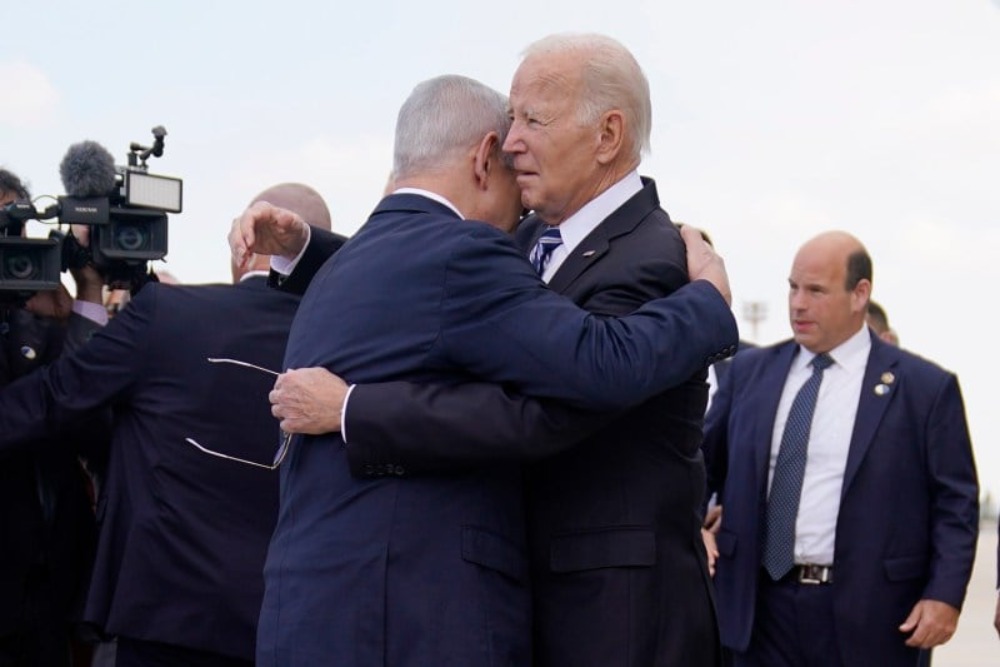Historically, the Israeli-Palestinian conflict has created the deepest divides between Europe and its Arab partners when Europe was working to strengthen bridges with Arab capitals, especially in the Gulf region.
The surge in overall regional tensions goes against European wishes for stability in the broader Middle East and North Africa region, which is viewed as linked to European stability. Finally, a new war in Israel-Palestine detracts resources and attention from the war in Ukraine, which remains a geopolitical priority for Europe. This makes Europe the ideal partner for regional players who share European goals for stability, and are willing to proactively push forward new ideas for a return to peace in Israel and Palestine.
The UAE as the only Arab country with a non-permanent seat at the UN Security Council shares the same goals with the EU. They are both focused on an immediate ceasefire and humanitarian needs of the besieged Palestinian people in Gaza.
Moreover, the EU insisted many times on preventing the return of Hamas to Gaza as a political and military force, opposing any attempt to re-colonize the strip by Israel, nor any forced displacement of the Palestinian people. The EU also demanded halting the illegal colonization of the West Bank, a significant source of tension and an obstacle to resolving the conflict.
European capitals share with the Gulf countries a strong desire to avoid any regional spill-overs, especially those involving a confrontation between the United States and Iran. Since December, the criticism of EU leaders to the Israeli atrocities in Gaza has been increasing. EU’s Josep Borrell along with the foreign ministers of France, Germany and the UK have all warned against the rising numbers of killed civilians in Gaza.
In addition, EU nations previously denounced two Israeli far-right ministers’ calls for the ‘emigration’ of Palestinians from Gaza and the building of settlements over-there. The controversial comments were made by Israel’s National Security Minister, Itamar Ben Gvir, and Finance Minister, Bezalel Smotrich. Just after the extremist comments were made public, many EU foreign ministers severely criticized them, including France, Germany, Spain and the Netherlands. The criticism from EU governments follows similar condemnation from the United States, Arab nations, and the United Nations.
European Union’s foreign policy chief has called the international community to impose a solution to the ongoing war as both, Israel and Hamas, are unable to come to terms. The senior diplomat added, “If this tragedy doesn’t end soon, the entire Middle East might end up in flames”.
Despite Borrell previous and several calls for an immediate ceasefire, the EU remained divided on the matter. Three European countries were still against it, Austria and the Czech Republic are still determined not to offend Israel, while Germany has changed its opinion later on and voted in favour of the ceasefire at the UN.
However, by the 21st Mar, everything suddenly shifted, it was the first time -in 5 months- all EU nations call for an immediate humanitarian pause which lead to a sustainable ceasefire. Tel Aviv was the only and most affected player by the European collective decision while it certainly aims to go on with fighting Hamas – with no vivid American red card to be raised to Israel.
Nevertheless, we may say that the EU is moving at the same speed of its trans-Atlantic ally. Antony Blinken, the US secretary of state, announced on a week ago, he would push for “an immediate ceasefire tied to the release of hostages” in a resolution at the UN Security Council. The recent two major developments are clear warnings to Israeli Prime Minister, Benjamin Netanyahu, and a considerable shift in the position of the US, Tel Aviv’s main supporter in the war in Gaza.
By now, the Arabs, the Russians, the Europeans, the Turks, the Iranians, and lately the Americans, are all calling for an immediate ceasefire in Gaza. Tel Aviv seems to be without options but to stop the war and head to negotiations. If Netanyahu refuses to do so, Israel will definitely suffer further negative political, economic, legal and social consequences. In other words, the price paid to fully win the war would be much higher than the expected gains out of it- if it will ever end soon.















Comments